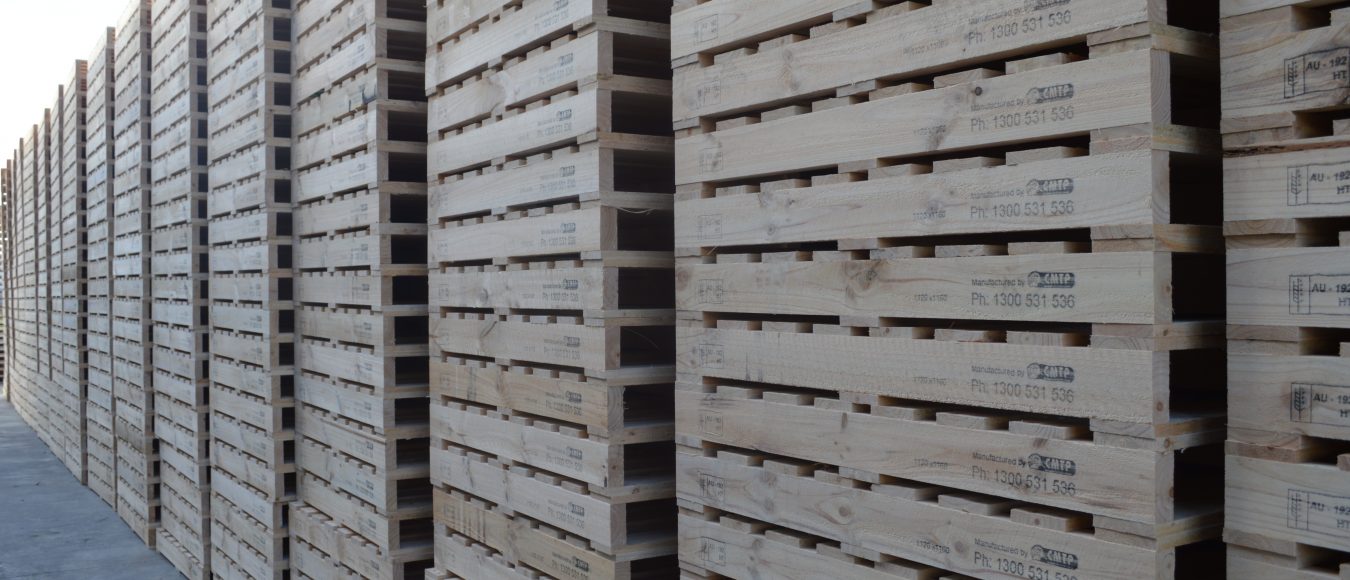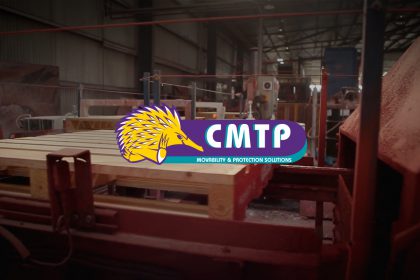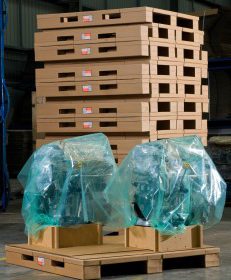Wooden pallets are widely used in the transportation and storage of goods, serving as an essential component of the global supply chain.
When it comes to exporting goods, it is crucial to adhere to the international standards, such as ISPM15, to ensure the safe and efficient movement of products. One such requirement is the use of heat-treated wooden pallets.
In this article, we will explore the reasons behind the use of heat-treated pallets for export, comparing them to chemically treated alternatives. Additionally, we will highlight the importance of choosing a reputable and experienced pallet company for the highest quality pallet for your purpose.
Understanding Heat Treatment for Wooden Pallets
Heat treatment is a process used to sterilise wooden pallets, eliminating pests, insects, and pathogens that may be present in the wood. The process involves subjecting the pallets to a specific temperature and duration, typically reaching a core temperature of 56° Celsius for a minimum of 30 minutes. This ensures the eradication of any potential threats, while still preserving the structural integrity of the wood.
Australian Export Regulations and Standards
In Australia, the Australian Wood Packaging Certification Scheme (AWPCS) regulates the use of wooden pallets for export. Under this scheme, heat-treated pallets are mandatory for international shipments. The International Standards for Phytosanitary Measures (ISPM) 15 also require that all solid wood packaging materials, including pallets, be heat treated or fumigated to prevent the spread of pests and diseases across borders.
Benefits of Heat Treated Pallets
Pest and Pathogen Control
Heat treatment ensures the elimination of pests, such as wood-boring insects and fungi, which can cause significant damage to ecosystems and agricultural industries in importing countries. It reduces the risk of introducing invasive species and protects the integrity of global trade.
Compliance with International Standards
The use of heat-treated pallets guarantees compliance with ISPM15 regulations, enabling smooth customs clearance and preventing costly delays or rejections at the destination. This ensures a streamlined export process and helps maintain a positive reputation for exporters.
Choosing a Reputable and Experienced Pallet Company
When it comes to sourcing heat-treated pallets for export, selecting a reputable and experienced pallet company is crucial. Companies like CMTP, with our extensive expertise and adherence to quality standards, can provide the following benefits:
Compliance Assurance
Reputable pallet companies ensure that their heat-treated pallets meet all necessary regulations and standards, giving you peace of mind and minimising the risk of non-compliance issues during export.
Quality Control
Experienced pallet companies follow stringent quality control measures throughout the heat treatment process, ensuring consistency and reliability in their pallets. This attention to detail guarantees the durability and performance of the pallets, minimising the likelihood of damage to your goods.
Customisation Options
Reputable pallet companies offer a range of customisation options to suit your specific export needs. Whether you require pallets of different sizes, load capacities, or special features, they can tailor their products to meet your requirements effectively. In addition, they should be able to provide pallets of different materials and sizes, such as plastic pallets as well as wooden pallets.
The Differences Between Plastic Pallets and Wooden Pallets
While wooden pallets are commonly used in export and logistics, it’s essential to consider the alternative option of plastic pallets. Understanding the differences between these two materials can help you make an informed decision based on your specific requirements. Wooden pallets are the cheapest option, particularly for one way export pallets.
Strength and Durability
Wooden pallets are known for their strength and ability to handle heavy loads. They provide excellent support and stability, making them suitable for transporting goods of various sizes and weights.
Lifespan and Reusability
Wooden pallets have a relatively shorter lifespan compared to plastic pallets, as they are subject to wear and tear over time. However, wooden pallets are often repaired, reused, or recycled, contributing to their sustainability.
Plastic pallets, though more durable, may be prone to cracking or damage from excessive weight or rough handling. Nevertheless, plastic pallets can also usually be recycled to assist in their sustainability.
Call CMTP to discuss your packing needs today
When it comes to exporting goods, using heat-treated wooden pallets is essential to comply with international regulations, safeguard against pests and diseases, and ensure the safe transportation of products.
Choosing a reputable and experienced pallet company like CMTP further enhances the benefits, providing compliance assurance, quality control, and customised solutions.
By prioritising heat-treated pallets and working with reliable suppliers, exporters can ensure the efficient and secure movement of their goods, while contributing to global trade sustainability and responsible supply chain practices.


